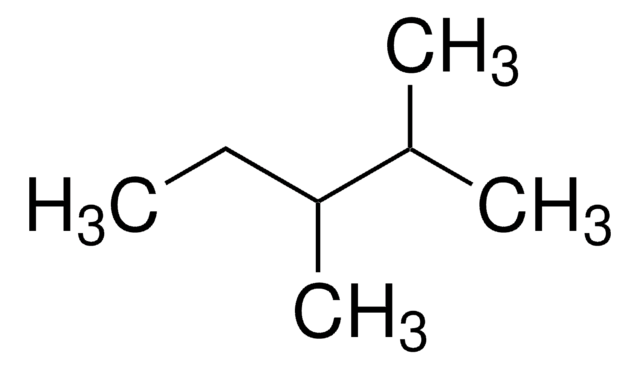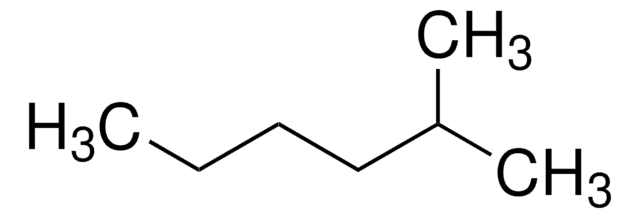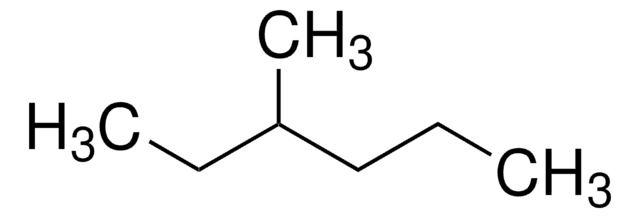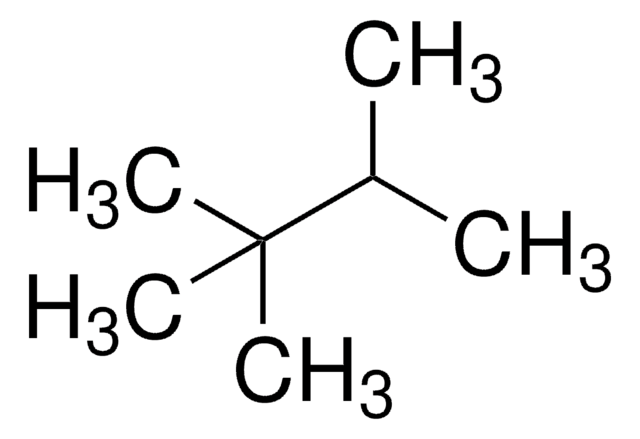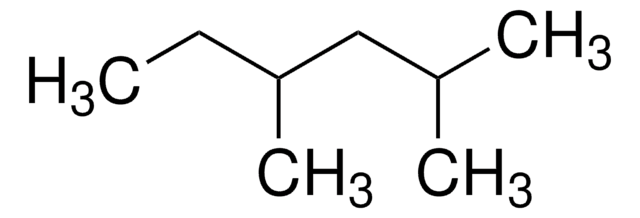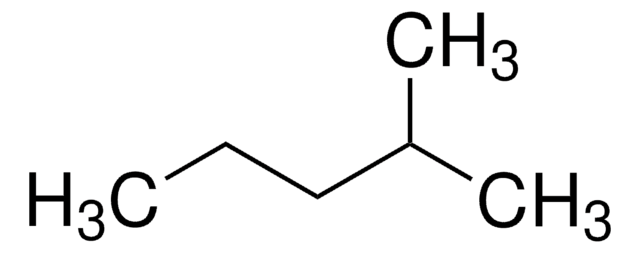118451
3,3-Dimethylpentane
99%
Synonym(s):
3,3-Dimethylpentane
About This Item
Recommended Products
vapor pressure
2.77 psi ( 37.7 °C)
Quality Level
Assay
99%
expl. lim.
~7 %
refractive index
n20/D 1.392 (lit.)
bp
86 °C (lit.)
mp
−135 °C (lit.)
density
0.693 g/mL at 25 °C (lit.)
SMILES string
CCC(C)(C)CC
InChI
1S/C7H16/c1-5-7(3,4)6-2/h5-6H2,1-4H3
InChI key
AEXMKKGTQYQZCS-UHFFFAOYSA-N
Looking for similar products? Visit Product Comparison Guide
Related Categories
General description
Application
accessory
Signal Word
Danger
Hazard Statements
Precautionary Statements
Hazard Classifications
Aquatic Acute 1 - Aquatic Chronic 1 - Asp. Tox. 1 - Flam. Liq. 2 - Skin Irrit. 2 - STOT SE 3
Target Organs
Central nervous system
Storage Class Code
3 - Flammable liquids
WGK
WGK 2
Flash Point(F)
19.4 °F - closed cup
Flash Point(C)
-7 °C - closed cup
Personal Protective Equipment
Choose from one of the most recent versions:
Already Own This Product?
Find documentation for the products that you have recently purchased in the Document Library.
Customers Also Viewed
Our team of scientists has experience in all areas of research including Life Science, Material Science, Chemical Synthesis, Chromatography, Analytical and many others.
Contact Technical Service